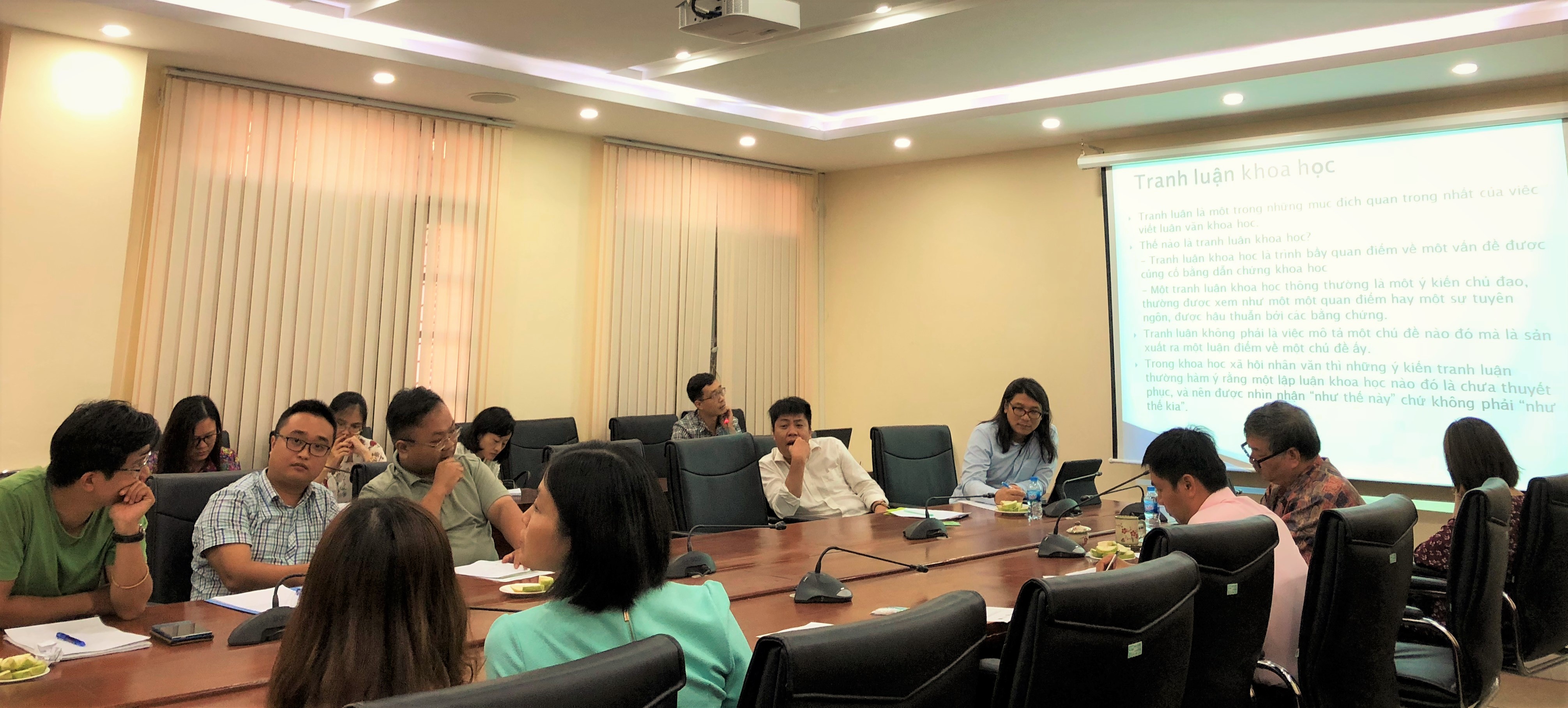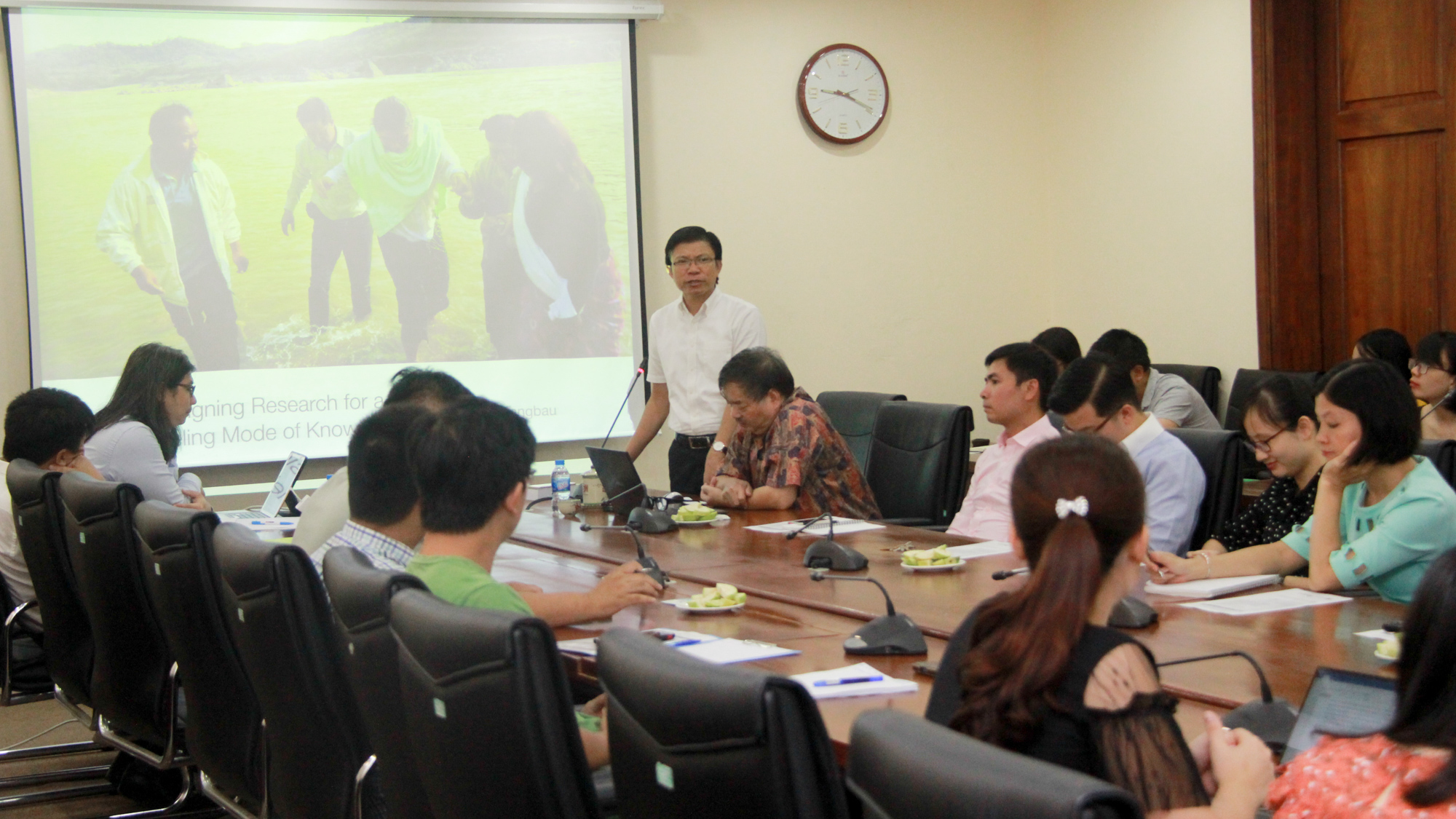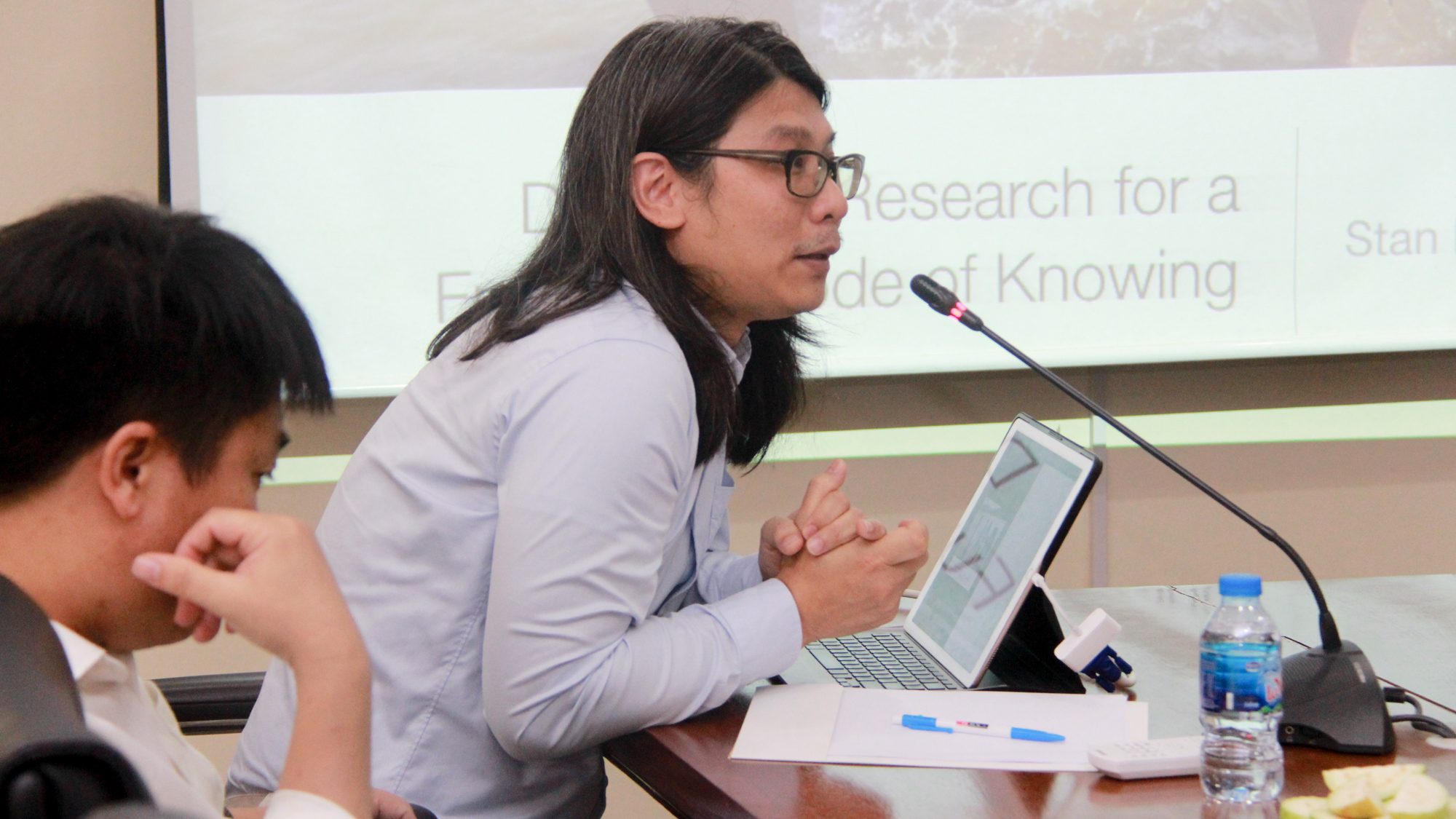To open his presentation, Assoc. Prof. Dr Nguyen Van Chinh introduced about the step-by-step process of designing an academic study: define a research question and its scientific basis; study and examine available materials; create hypotheses based on which to answer the research questions; find theories/arguments to lead the research; define the terms/concepts; select and analyze research methods, sites and units; consider the possibility and create a timetable of the research; make expense forecast for each spending unit; create a plan for reporting/presenting the findings; and create a tentative bibliography.
Assoc. Prof. Dr Nguyen Van Chinh said a scientific study is only considered contributive if it has novelty and originality. These two features are understood as the ability of a study that, based on previous findings, is able to produce new knowledge instead of summarizing or reusing existing knowledge under a new form. Novelty can be related to the old topic but has to involve new discoveries or problems.

In addition, the general examination and analysis of materials related to the research topic was marked extremely important by the speaker. “It is a central and essential task, a vital demand in the entire process, from the beginning to the presentation of its findings”, said the speaker.
The speaker said the role of examining materials is to review the sources related to research topic and create the pathway to discovering new things; based on which to define research questions/approaches.

On the question of how to examine the materials, Assoc. Prof. Dr Nguyen Van Chinh advised young scholars: begin with a research idea/issue, then look for relevant materials to see if the issue has been studied, how it has been studied and what has been discovered. Next analyze and refer to the research issue set out by the materials; find the research basis used in those materials; analyze the methods and information used in them. During the progress, the researcher has to pay extra attention to the validity of the sources used and their contributions.
Assoc. Prof. Dr Nguyen Van Chinh also mentioned the concept of “scientific debate” and imperative rules in debating. This was considered one of the most important purposes of writing an academic paper. “Scientific paper is to provide opinions on an issue backed by evidence. To debate is not to describe a topic but to produce an argument concerning it”.
Finding and proposing a scientific debate is not easy, because such a debate has to be specific, original, and compatible with the research topic. A good article not only raises arguments/statements again and again, but supports them with evidence. Evidence is supposed to either strengthen or ruin the arguments. One of the ways to reinforce the arguments and make the readers understand your discussed topic is to propose counter-arguments and objections. By providing possible counter-arguments to your own arguments/debates, you are able to show your firm understanding of the topic and convince readers to accept your arguments.

Continuing the workshop, the second speaker, Prof. Stan BH Tan-Tangbau presented his paper “Designing research for a funneling mode of knowing”. The speaker illustrated the standard steps of designing a research project, including Objectives – Main research question – Hypothesis/Background/Review of Contextual background/Review of theoretical paradigms/Review of existing studies. Researchers have to answer the following questions: How do they raise the central research question-hypothesis? Why is the research worth pursuing? Why is it scientific?
|
The training workshop: “Designing international research projects: skills and experiences” is the 2nd of 6 workshops held by University of Social Sciences and Humanities under the framework “Strengthening national research and innovation capacities in Vietnam” (ENHANCE) sponsored by the Erasmus Program+ under the European Union. ENHANCE is aimed at improving the capacities of Vietnam’s educational institutions, promoting the performance and management of innovation and research. Participants in this program include 02 Vietnamese government authorities: Ministry of Education and Training and Ministry of Science and Technology; 06 Vietnamese higher education institutions: Thai Nguyen Univerisity USSH (VNU, Hanoi), Agriculture and Forestry University (Hue University), USSH (VNU, HCM City), Can Tho University and An Giang University; 03 European higher education institutions: Slovak University of Technology in Bratislava (Slovakia), Glasfow Caledonian University (Scotland) and Alicante University (Spain) – the coordinating unit. The project lasts for 3 years (2015-2018). |
Author: Duy Anh
Reader Comments
Newer articles
Older articles